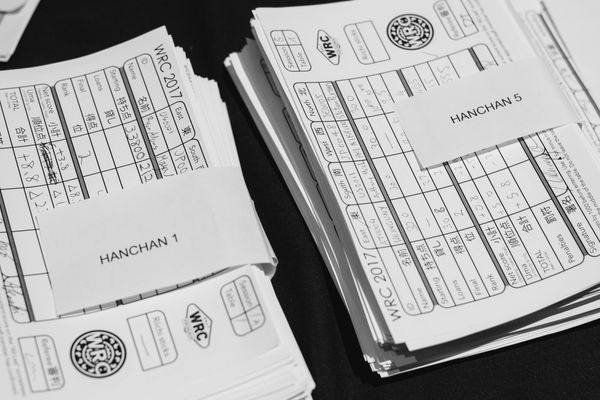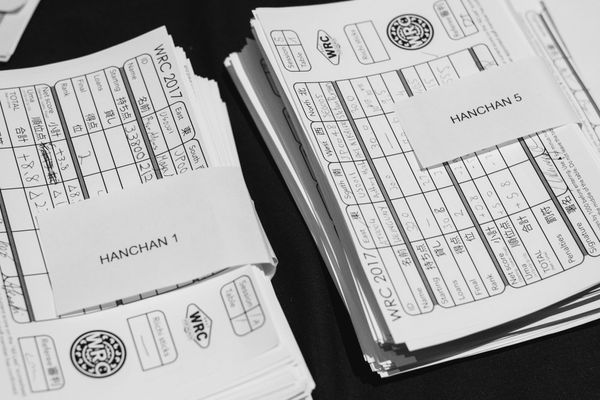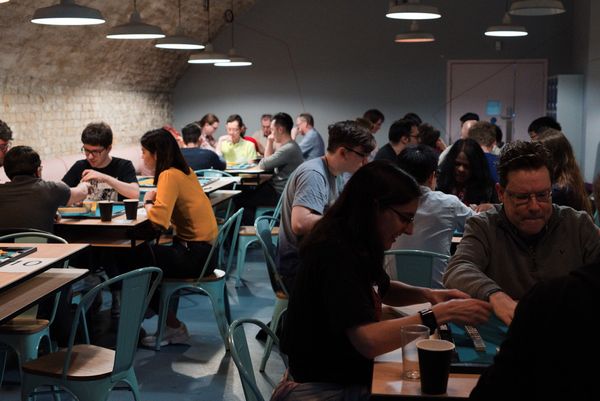Blunt but honest mahjong discussion
It is not unusual that people ignorant to certain aspects of a topic will speak about them anyway. This is usually what an opinion is, and people feel a need to expose their opinions in public for different reasons. By extension, it is only natural they they will communicate such views online as well, on blogs or forums. However, sometimes, if what they are exposing doesn’t fulfill certain standards of “correctness”, they will get called on it by someone. At that point, a number of things may occur:
- The person accused of being wrong will feel (personally) attacked. At times, he will “fight back.” In the worst of cases, the accuser himself will in turn fight back again starting an argument.
- The person accused of being wrong will feel they are right, and that the other person is wrong. (It is funny, do you know how being wrong feels? It feels a lot like being right)
- The person accused of being wrong will not try to prove they are right, but won’t admit they are wrong either, show no disposition whatsoever towards fixing their mistake, or will just disregard the other person’s claims altogether (“it doesn’t matter, this thing isn’t even serious, everyone is entitled to their opinion”).
and,
- Very rarely, one of the two will admit to being wrong and learn something.
The ideal thing would be, reaching point number 4. That is the only point where in the end, both parties are pleased, and there is mutual agreement. The experience ends up as being positive, and useful, as there was also learning. This takes us a step further towards the truth. And that is what we are all exposing our opinions and theorizing for: getting to the truth, perfecting our knowledge.
I won’t refer to any specific incidents, as most of them go a while back, but such situations used to be fairly common in a What Would You Discard discussion board.
Blunt honesty isn’t a bad thing, and disregarding the point being made just because of the way it is presented isn’t very productive. Being “civil” doesn’t mean being careful as to not alter your perception of things with blunt but punctual and honest statements that hold the purpose of having a more objective discussion. I find it uncivil and irresponsible to present possibly faulty information (even if it is in the form of an opinion) if you lack the will to sustain an honest and open argument without asking the other person to sugar-coat his statements for you. Especially if such statements are made with the intention of slapping people back to reality for the sake of their learning. Some people do need to wake up, and the nicer and harder thing to do is face them with cold facts, and honesty.
There is a reason why “there are no rights and wrong here” is a terribly lousy argument. I recommend you head to this post, “The Many Forms of I don’t know”
So, if you are thinking of posting something that might be bullshit somewhere online, consider the fact that the person calling you on your bullshit might not be lenient on it! I know that I am ready to take any hits when I post something, and looking back in the archive of this blog, I found lots of bullshit, mostly mine, but that we can correct in time. Finally, since we mentioned Bullshit, I want to leave you with some extracts from Penn Jillette explaining Why Tolerance is Condescending. (If you are not going to read this whole post and the two links I posted, don’t bother replying with more bullshit!)
Extract of the parts of the video that are appropriate for this post:
“[…] My difference of opinion is with objective and subjective reality. Einstein said the big question is: when you turn away is the tree still there? […] I believe very strongly that there is a (physical) reality that my perception does not change. […] The problem I have […] is that once you’ve said that you believe something that you can’t prove to someone else, you have completely walled yourself off from the world, and you’ve essentially said no one can talk to you and you can talk to no one. You’ve also given license to everyone else who feels that. […] I would rather be busted on everything I say, and I am! When you put yourself out on television and on radio as someone who really does believe in objective truth there is not a sentence that I will say in this interview that won’t get three or four tweets of somebody with information busting me on it. And they’re right! Very rarely am I busted on something where I’m right. If someone’s taken the trouble to let me know I’ve said something wrong, chances are I’m wrong. But that’s the world I wanna live in. I wanna live in a world of a marketplace of ideas where everybody is busted on their bullshit all the time because I think that’s the way we get to the truth, that is also what respect is. What we call tolerance nowadays […] is often just condescending, it’s often just saying ‘okay, you believe what you wanna believe, that’s fine with me.’ [That’s] the way you talk to a child.”



